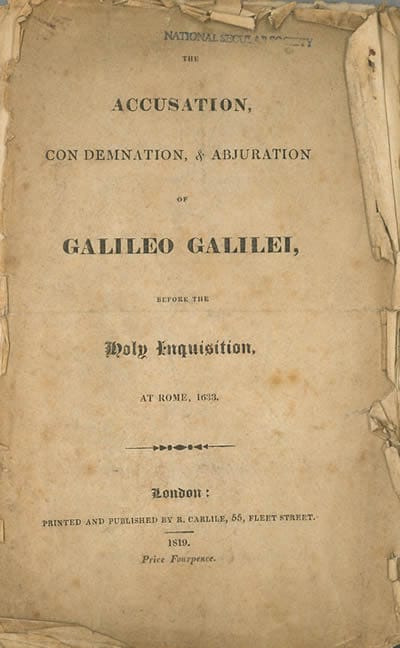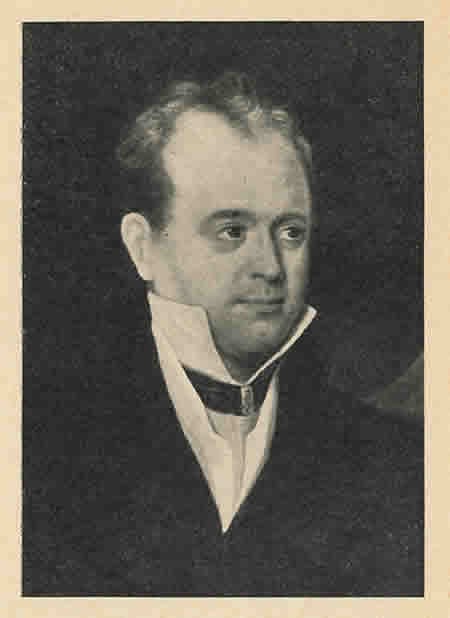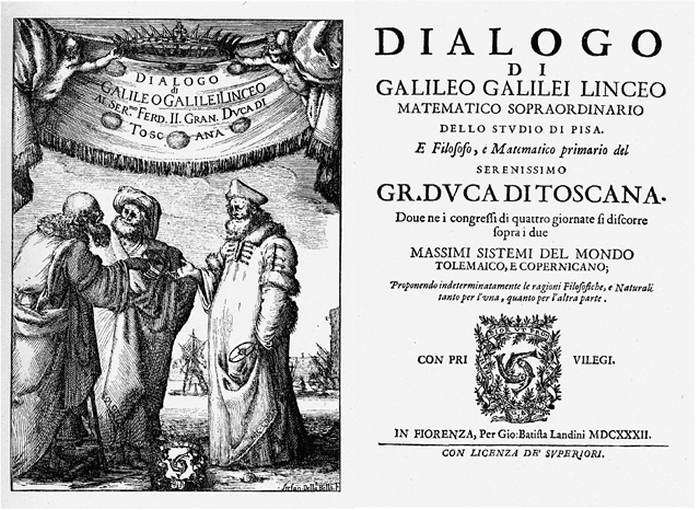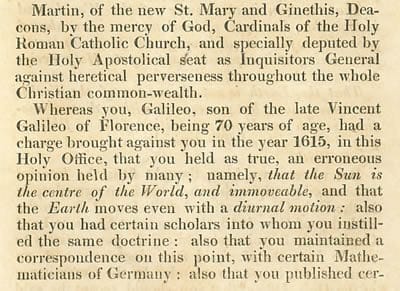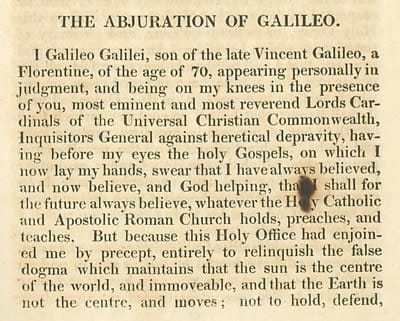Estimated reading time: 2 minutes
This gem was recently discovered in the Library at Conway Hall. Published by Richard Carlile (1790-1843) in 1819, it is an account of the trial of Italian astronomer Galileo Galilei (1564-1642) in 1633 who was charged with heresy by the Catholic Church.
The pamphlet was published by Carlile, a radical journalist, who, in 1819, was himself charged and subsequently jailed for blasphemy and seditious libel for publishing Thomas Paine‘s banned works The Age of Reason and The Rights of Man as well as the radical newspaper The Republican. Targeting specifically the working classes, Carlile was charged with publishing material that promoted reform and criticism of the Church and Government. He also wrote in support of agricultural reform, birth control, and the emancipation of women.
In The Accusation…, Carlile compares his fight for freedom of speech with that of Galileo who was prosecuted by the Inquisition for publishing Dialogue Concerning The Two Chief World Systems (1632). Here, the Italian, who has been called “the father of modern science”, challenged Biblical tradition and authority by appearing to promote the idea that the earth, rather than the sun, was at the centre of the universe and that all the planetary bodies, including earth, revolved around it. By suggesting heliocentrism rather than geocentrism, Galileo relegated earth from its celestial and perfect position in the heavens, as expounded by the Bible, to just another ordinary planet in the universe.
By daring to suggest that the Bible was wrong, Galileo, aged 70 at the time, was charged with heresy and summoned to appear before the Inquisition in Rome in 1633. In fear of being burned alive, he was forced to recant his beliefs, his book was banned by the Church, and he was subject to house arrest for the rest of his life.
Written in the same year he was imprisoned, this fragile 15-page pamphlet begins with a highly critical attack in which Carlile compares his persecutors [the British judicial system] to the Catholic Church who barred scientific progress and freedom of the press for fear of subverting and undermining established Christian doctrine.
Carlile then includes a word-for-word transcript (in English) of the Inquisition and their charges against Galileo, as well as Galileo’s humbling rejection of his heliocentric beliefs and plea for forgiveness.
This interesting pamphlet forms part of the National Secular Society’s archive. Provenance is unknown. It is fairly fragile and has a mysterious burn mark on the back pages.
